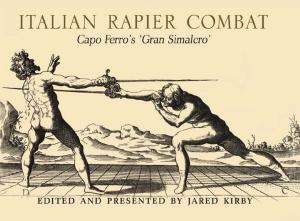We Hope to Get Word Tomorrow
The Garvin Family Letters, 1914–1916
Nonfiction, History, Military, World War I| Author: | Garvin | ISBN: | 9781783033218 |
| Publisher: | Frontline Books | Publication: | March 10, 2010 |
| Imprint: | Frontline Books | Language: | English |
| Author: | Garvin |
| ISBN: | 9781783033218 |
| Publisher: | Frontline Books |
| Publication: | March 10, 2010 |
| Imprint: | Frontline Books |
| Language: | English |
This fascinating collection of letters traces the exchanges between a young subaltern on the front, Gerard ‘Ged’ Garvin, and his mother and father at home. Correspondence was eagerly awaited by all. Ged savored letters home like ‘Jim Hawkins trickling the doubloons through his fingers’. Equally, his mother and father at home were always fearful that each letter they received would be the last. In a letter J. L. Garvin sent to his son 21 July 1916 he wrote: ‘Of course there’s no fresh letter from you and we didn’t expect it. But we hope, all the same, to get word tomorrow . . .’ Ged was killed the very next day. He was just twenty years old.
Few editions of First World War letters include those from home as well as from the front. That Ged’s father was J. L. Garvin (1868–1947) – editor of The Observer and an important figure in pre-war politics and society – adds a further dimension to this fascinating collection. During the war J. L. Garvin was in almost daily contact with those at the head of political and military affairs, and his letters gave Ged the view of the nerve center. They are remarkable for their reflections on the war and its management – or in Garvin’s view its mismanagement – and for the character sketches of major figures of the day, such as Churchill, Lloyd George, and Admiral ‘Jacky’ Fisher. His mother, Christine, meanwhile wrote of family and domestic affairs showing the impact of war on every day life.
The three-cornered correspondence therefore combines three distinct narratives: the view of the subaltern at the front; the view from the editor’s office at The Observer; and the view from the head of a substantial household. Taken together they vividly capture the experience of a family during the First World War.
This fascinating collection of letters traces the exchanges between a young subaltern on the front, Gerard ‘Ged’ Garvin, and his mother and father at home. Correspondence was eagerly awaited by all. Ged savored letters home like ‘Jim Hawkins trickling the doubloons through his fingers’. Equally, his mother and father at home were always fearful that each letter they received would be the last. In a letter J. L. Garvin sent to his son 21 July 1916 he wrote: ‘Of course there’s no fresh letter from you and we didn’t expect it. But we hope, all the same, to get word tomorrow . . .’ Ged was killed the very next day. He was just twenty years old.
Few editions of First World War letters include those from home as well as from the front. That Ged’s father was J. L. Garvin (1868–1947) – editor of The Observer and an important figure in pre-war politics and society – adds a further dimension to this fascinating collection. During the war J. L. Garvin was in almost daily contact with those at the head of political and military affairs, and his letters gave Ged the view of the nerve center. They are remarkable for their reflections on the war and its management – or in Garvin’s view its mismanagement – and for the character sketches of major figures of the day, such as Churchill, Lloyd George, and Admiral ‘Jacky’ Fisher. His mother, Christine, meanwhile wrote of family and domestic affairs showing the impact of war on every day life.
The three-cornered correspondence therefore combines three distinct narratives: the view of the subaltern at the front; the view from the editor’s office at The Observer; and the view from the head of a substantial household. Taken together they vividly capture the experience of a family during the First World War.















